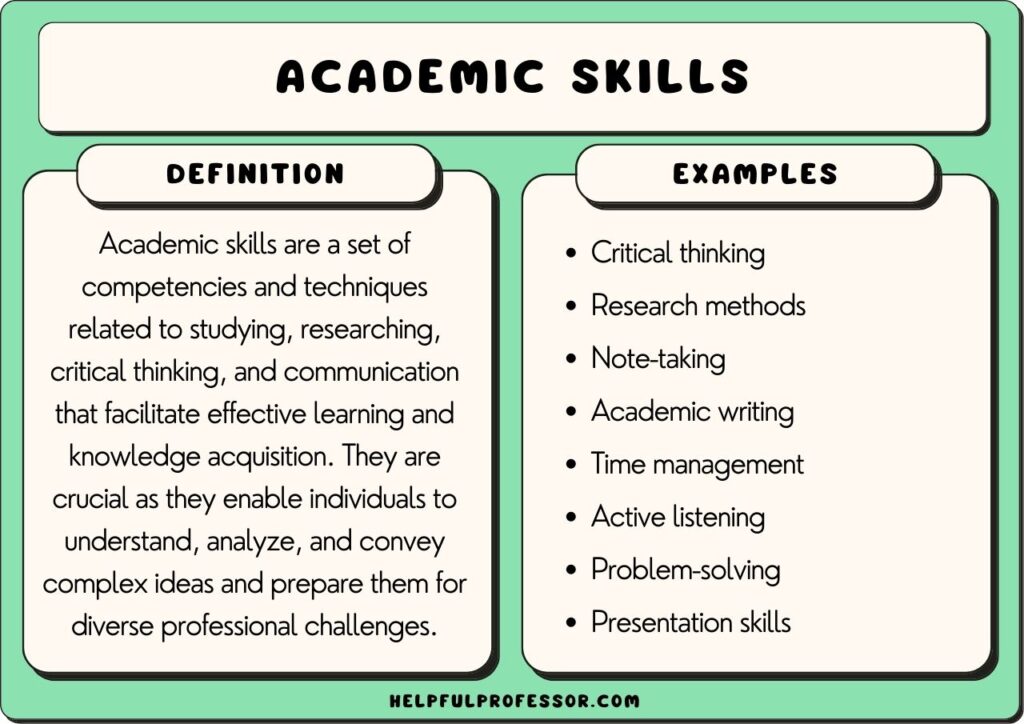What are academic skills examples? – Unlocking your academic potential often hinges on a blend of knowledge and skills. These aren’t just about memorizing facts; they’re about understanding, applying, and even creating new knowledge. Academic skills are the tools that help you succeed in your studies, whether you’re a high school student tackling algebra or a graduate student conducting research. They’re the foundation for critical thinking, problem-solving, and lifelong learning. Think of them as the building blocks for academic success.
A wide range of skills falls under the umbrella of “academic skills.” They’re not always explicitly taught, but they’re essential for navigating the complexities of learning. They empower you to not just absorb information, but to truly engage with it and use it effectively. Imagine a toolbox—each skill is a tool, and together, they create a powerful set of capabilities for tackling academic challenges.

Here are some key examples of academic skills, categorized for clarity:
- Critical Thinking: This involves analyzing information objectively, identifying biases, and forming reasoned judgments. It’s about going beyond surface-level understanding and delving deeper into the meaning and implications of what you’re learning.
- Research Skills: Finding, evaluating, and using information effectively is crucial for any academic pursuit. This includes knowing how to locate reliable sources, assess their credibility, and synthesize information from multiple sources.
- Communication Skills: Whether writing essays, giving presentations, or participating in discussions, effective communication is paramount. It’s about expressing your ideas clearly and persuasively, both in writing and verbally.
- Time Management: Balancing studies with other commitments, like work or personal life, requires effective time management. Learning to prioritize tasks, create schedules, and avoid procrastination are vital skills.
- Note-Taking: Converting lectures and readings into useful notes is essential for retaining information and preparing for exams. Different methods, such as outlining or mind mapping, can help.
- Problem-Solving: This involves identifying problems, generating possible solutions, and evaluating their effectiveness. It’s a critical skill in tackling academic challenges, from solving equations to analyzing complex texts.
Developing these academic skills takes time and practice. It’s a journey, not a destination. With consistent effort and the right strategies, you can build a strong foundation for academic success and beyond. Remember, these skills aren’t just for the classroom; they’re valuable assets for navigating the complexities of life in general. Just like any tool, the more you use these skills, the sharper and more effective they become. Think about how these skills could help you in your career! You can build upon these skills throughout your entire life!
